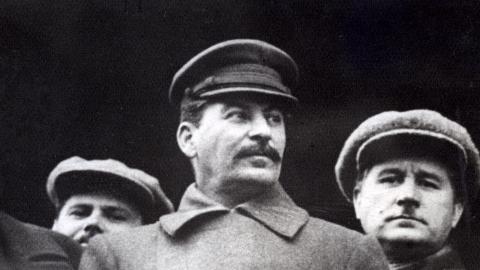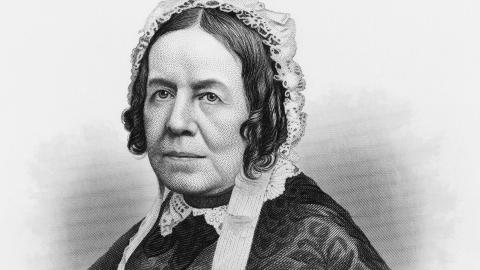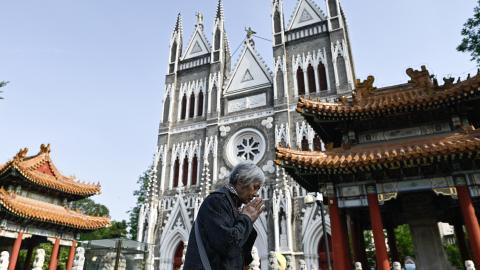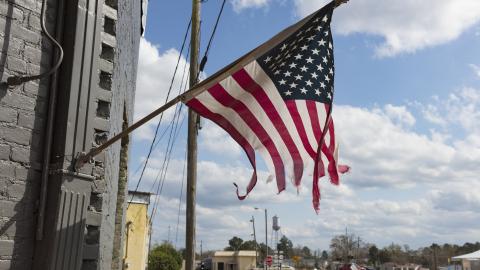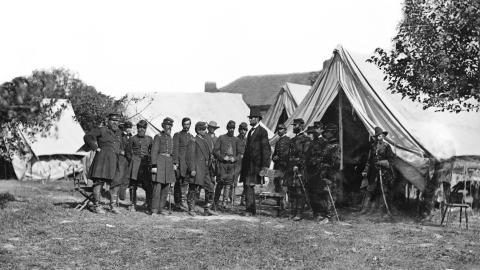This week marks the anniversary of the bloodiest day in American history. In September 1862, at small town in western Maryland, nearly 23,000 young Americans were killed or wounded. Although just a few hours’ drive from Washington D.C., Antietam National Battlefield has become less popular with tourists in the 163 years since the battle. Antietam’s legacy is now overshadowed in the American consciousness by Yorktown, Gettysburg, and Normandy, yet the significance of Antietam in the chronicle of liberty cannot be overstated as the cost born there directly resulted in the largest expansion of American freedom since the revolution.
The dynamic of freedom and conflict, beauty and carnage permeate the fields around Sharpsburg, Maryland, as fall in the northern stretches of the Appalachian Mountains is nothing short of beautiful. The farms, streams, and rolling hills – covered in fall colors – are lined with golden fields and dotted with farmhouses and red barns. The area looks purely and uniquely American, with a beauty that lies in stark contrast to the carnage that took place here.
Antietam was a horrific battle, with no clear victor. And despite that, it resulted in a seismic victory for liberty – the freedom of 3.5 million enslaved Americans through the Emancipation Proclamation just five days afterwards. Antietam is, like Normandy, a place where America purchased freedom for others with the blood of her sons.
The details of Antietam are complex. The Union commander, General George McLellan, an aristocratic Democrat from Philadelphia, opposed President Lincoln’s view of the war. McLellan openly argued for an end to the conflict without an end to slavery. He suggested that negotiations with the Confederate states, and the preservation of slavery, were more favorable than death and destruction. His primary goal seems to have been simply to avoid large numbers of Union casualties.
Opposite McLellan was the General Robert E. Lee of Virginia, a descendant of Revolutionary War heroes from and signatories of the Declaration of Independence. Lee, unlike McLellan, saw slavery as a moral evil, and repeatedly petitioned his president, Jefferson Davis, to free the slaves as a means for ending the war.
The two men are near opposites politically and in terms of capability. One can imagine how different the war would have looked had they been born in different states.
Despite McLellan’s arrogance, caution, and indifference to slavery, liberty ultimately prevailed at Antietam through the spiritual resolve and moral clarity of Abraham Lincoln. The battle was an effective stalemate despite immense amounts of heroism and courage. As Lee’s wounded army maneuvered back across the Potomac, it was Lincoln who seized the moment to deliver the Emancipation Proclamation.
The gift of Antietam is moral clarity for the nation. Lincoln’s decision solidified the war as one to free the slaves and not just to preserve the Union. On the 100th anniversary of the Emancipation Proclamation, Martin Luther King placed the document alongside the Declaration of Independence as an imperishable contribution to Western civilization. And this achievement – the liberation of enslaved people – came at great cost. After Antietam, the war would drag on for over two more years and cost nearly 750,000 American lives, but like the will of America’s soldiers at Antietam, the nation in all its beauty and complexity, emerged unbreakable.
As Union veteran Robert Kennedy would later write,
“it was the private soldier whose courage and devotion on these fields of blood and carnage upheld the glory of the country and forever preserved its unity. Let him be carved in granite as indestructible, as the everlasting hills, and let it stand as a witness to the valor and devotion of the men who came from the quiet homes of the country. Determined that a nation dedicated to the liberties of the human race should not perish from the Earth.”
This is why more Americans should make the pilgrimage to this pristine section of American countryside. It is a place that reminds us that freedom comes at great cost, that moral clarity is preferable to caution, and that God has an incredible ability to turn death and despair into hope and light.


